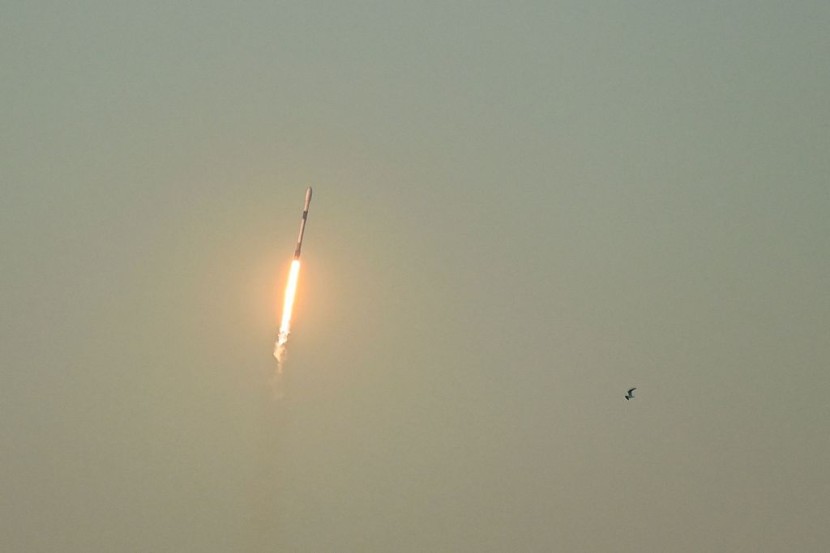
- SpaceX launches Falcon 9 rocket carrying 56 Starlink satellites
- The company successfully landed the returning part of the rocket at sea
- The latest launch brings the total number of Starlink satellites launched by SpaceX to more than 4,200
SpaceX launched its latest Starlink mission with 56 satellites now traveling to orbit and was also able to land a rocket at sea successfully.
The endeavor is the latest batch of Starlink satellites that the company has sent out and were carried by the Falcon 9 rocket. The spacecraft launched from Florida's Cape Canaveral Space Force Station at roughly 4:01 p.m. on March 29.
SpaceX Launches 56 Starlink Satellites
The rocket's first stage returned to Earth just as the company planned, completing a vertical touchdown on the SpaceX drone ship known as "Just Read the Instructions" (JRTI) less than 10 minutes after the launch.
The event marked the fourth launch and landing of that particular booster, the space company said in a mission description. On the other hand, the upper stage of the Falcon 9 rocket continued to carry several dozens of Starlink satellites to low Earth orbit (LEO). After 65 minutes from liftoff, the rocket successfully deployed all 56 satellites as planned, per Space.
The March 29 launch marked the 21st mission by the space company this year and is the 11th devoted to building out SpaceX's Starlink broadband constellation. The additional 56 units now bring the total number of Starlink satellites launched by the company to more than 4,200.
This number is expected to steadily grow far into the future as Elon Musk's space company already has permission to deploy 12,000 Starlink satellites in LEO. It has also applied for permission to launch 30,000 units after that.
The situation comes as the space company's upgraded Starlink satellites need to be faring better. Musk confirmed the issue last week, saying that some units of the newly launched Starlink V2 Mini satellites will most likely have to be deorbited and destroyed in the Earth's atmosphere. The remaining units will then be left in space and observed while being tested.
A Challenge to SpaceX's Falcon 9 Rocket
Musk's remarks were a response to ongoing speculation by experts monitoring the orbit of the V2 Mini satellites. They noted that some of the units were lowering their altitude while others were seen to have a more eccentric orbit compared to others, according to Gizmodo.
In a Twitter post, an astrophysicist at the Harvard-Smithsonian Center for Astrophysics, Jonathan McDowell, said that SpaceX was debugging some issues with the new Starlink satellites. He noted that they would see if the units in question would resume orbit raising in a few weeks.
Furthermore, Rocket Lab has set a target for a $50 million launch price for its Neutron rocket to challenge SpaceX's Falcon 9 spacecraft. The planned unit is allegedly a larger, reusable launch vehicle known as Neutron.
In a statement on March 22, Adam Spice, the chief financial officer of Rocket Lab, said that they were positioning Neutron to compete directly with SpaceX's Falcon 9. CNBC said his remarks were made during a Bank of America event held in London.
Related Article: Chinese Scientists Discover Hidden Water Reservoir on Lunar Surface
© 2026 HNGN, All rights reserved. Do not reproduce without permission.








